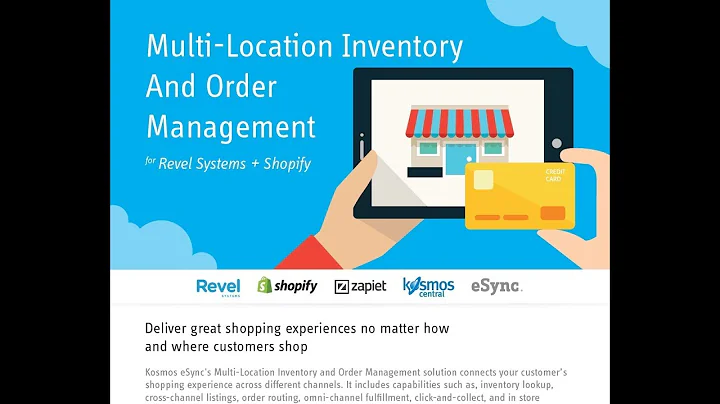Unlocking Repeat Business: The Power of SMS Marketing
Table of Contents
1. Introduction
- Background Information
- Purpose of the Article
2. Importance of Returning Customers
- Why Returning Customers Matter
- Impact on Revenue
- Building Customer Loyalty
3. Factors Affecting Returning Customers
- Quality of Product
- Timely Shipping
- Communication with Customers
4. The Role of SMS Marketing
- Why SMS Marketing is Essential
- Benefits of SMS Marketing
- Case Study: Successful SMS Marketing Campaigns
4.1 The Importance of Wording in SMS Marketing
- Crafting Compelling Messages
- Personalization and Customization
- Creating a Sense of Urgency
4.2 Utilizing Visuals in SMS Marketing
- The Power of Images and Videos
- Enhancing Engagement through Visuals
- Ensuring Visuals are Mobile-Friendly
4.3 Providing Incentives in SMS Marketing
- Effective Discounts and Promotions
- Exclusive Offers for Returning Customers
- Balancing Discounts with Profit Margins
5. Integrating SMS Marketing with Other Strategies
- Combining SMS Marketing with Email Marketing
- Leveraging Influencer Marketing and Giveaways
- The Role of Ads in Customer Acquisition
5.1 Segmenting Customers for Targeted SMS Marketing
- Utilizing Customer Data for Segmentation
- Tailoring Messages Based on Customer Segments
- Maximizing Conversion Rates with Targeted SMS Marketing
5.2 Best Practices for SMS Marketing
- Choosing the Right SMS Marketing Platform
- Legal Considerations and Regulations
- Timing and Frequency of SMS Campaigns
6. Measuring the Success of SMS Marketing
- Key Metrics to Track
- Analyzing Conversion Rates
- ROI Analysis for SMS Marketing
7. Conclusion
- Recap of Benefits of SMS Marketing
- The Future of SMS Marketing
Why You're Not Getting Returning Customers: The Importance of SMS Marketing
In today's highly competitive market, attracting customers is only half the battle. The real challenge lies in retaining those customers and fostering loyal relationships with them. A high rate of returning customers is a strong indicator of business success, as these customers not only make repeat purchases but also become brand advocates, spreading positive word-of-mouth and driving new customer acquisition. However, many businesses struggle to cultivate a solid base of returning customers, leading to stagnant growth and lost revenue.
Importance of Returning Customers
Returning customers play a crucial role in the long-term sustainability and profitability of a business. Here are some key reasons why they matter:
-
Revenue Impact: Returning customers are more likely to spend more money compared to new customers. Studies have shown that the probability of selling to an existing customer is 60-70%, while the probability of selling to a new prospect is only 5-20%. By focusing on retaining existing customers, businesses can unlock significant revenue potential.
-
Building Customer Loyalty: Building a loyal customer base is essential for brand sustainability. Loyal customers not only continue to purchase from a brand but are also less likely to be swayed by competitors. They become advocates for the brand, promoting it to their friends, family, and networks, which helps acquire new customers organically.
Factors Affecting Returning Customers
Several factors contribute to the likelihood of customers returning to make repeated purchases. Here are three critical factors businesses must address to improve their customer retention rates:
-
Quality of Product: The cornerstone of customer satisfaction lies in delivering a high-quality product or service. If customers are not satisfied with their initial purchase, they are unlikely to return for future transactions. Therefore, businesses must prioritize the quality of their offerings and ensure consistency in meeting customer expectations.
-
Timely Shipping: Customers value prompt and reliable delivery. Late shipments, damaged goods, or poor tracking information can significantly impact the overall customer experience. Investing in efficient shipping processes and effective communication with customers regarding any delays or issues is crucial to maintaining their trust and confidence.
-
Communication with Customers: Establishing open lines of communication with customers is vital for building a strong relationship. Regularly updating customers on order status, providing personalized recommendations, and addressing any concerns or inquiries promptly helps foster a sense of trust and loyalty. Effective communication can be achieved through various channels, including SMS marketing.
The Role of SMS Marketing
SMS marketing has emerged as a powerful tool for businesses to engage with their customer base and drive repeat purchases. The widespread use of mobile phones and the ever-increasing preference for text messaging make SMS marketing an effective channel for reaching customers directly. Here's why SMS marketing is essential and how it can benefit businesses:
-
Immediate and Direct Communication: SMS messages have an exceptionally high open rate, with studies showing that 98% of SMS messages are read within minutes of being received. This immediate and direct form of communication ensures that important updates, promotions, and announcements reach the audience effectively.
-
Personalization and Customization: SMS marketing allows businesses to personalize messages and tailor them to individual customers or specific customer segments. By addressing customers by name and sending relevant and targeted offers, businesses can create a personalized experience that resonates with recipients.
-
Creating a Sense of Urgency: The concise nature of SMS messages makes them ideal for creating a sense of urgency. Limited-time offers, exclusive discounts, and flash sales communicated through SMS marketing can motivate customers to make purchases quickly, enhancing conversion rates and driving revenue.
Incorporating SMS marketing into a comprehensive customer retention strategy can yield significant benefits for businesses. By continuously engaging with customers through SMS messages, providing exclusive offers, and maintaining a personal connection, businesses can foster loyalty, increase repeat purchases, and maximize their revenue potential.
(Further sections of the article to follow based on the provided Table of Contents)


















